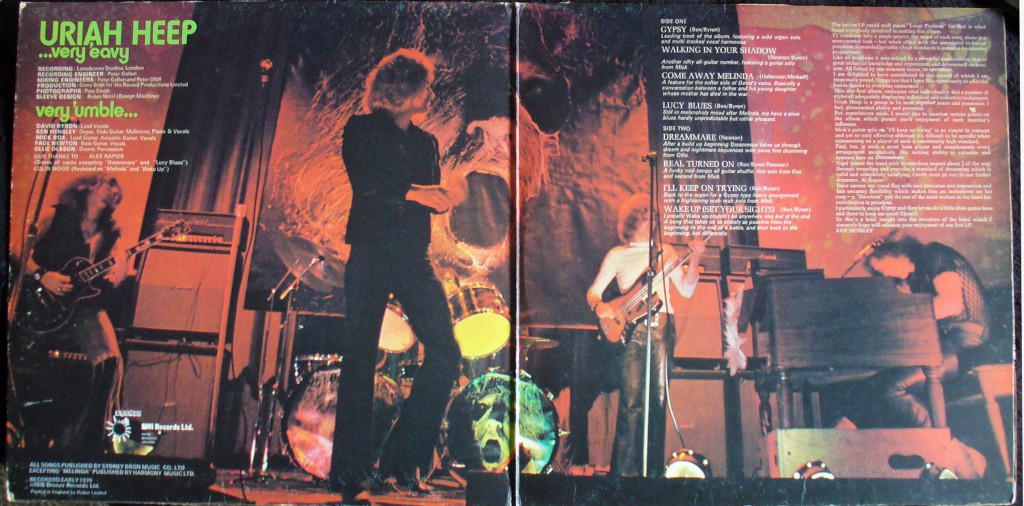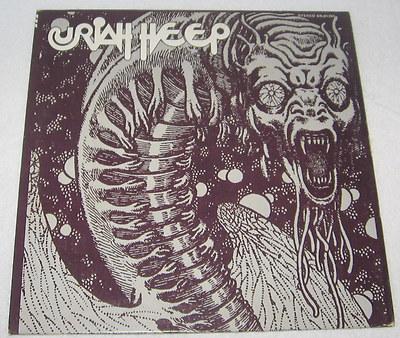2019 is (to me at least) one of those times when the zeitgeist feels like an actual entity, less the ‘spirit of the age’ and more an actual ‘time-ghost’, a baleful Lovecraftian presence whose unseen influence poisons the atmosphere of the era, insidiously affecting the minds of influential people.
It’s a silly conceit perhaps (although few ancient civilisations would have thought so), but also a handy one; great swathes of history can be explained by the idea of the time spirit invisibly presiding over the earth like the Old Gods of the Cthulhu mythos; ages of empire and revolution and war and faith and enlightenment and (that ambiguous word) “progress” of various kinds.
Looked at as a succession of identifiable ages, the idea of zeitgeist (as an entity, or in the usual usage) has both pluses and minuses. On the one hand it gives us history in a usefully linear, easy-to-summarise, teach and learn kind of way, (too) neatly summarising otherwise amorphously opening and closing stretches of time. On the other hand, it removes to an extent the sense of individual and group responsibility that’s at the heart of all human activity and ventures.
This is almost fair; people have no choice but to act as products of their time and environment; but mostly it’s unfair, since whatever time people come from, ideas of good/bad (extreme ones anyway) remain somewhat static: people generally do know when they are acting badly. And while people are a product of their time, times even more so are a product of the people who inhabit them. The eternal problem is that even rational and enlightened human beings can be counted on to do irrational things. Some of these, like firing missiles at people who they don’t know and have no personal disagreement with, are simply harmful. Others, like voting for political parties which it is not in their own interest to have in power, or protesting by destroying the neighbourhoods they live in, when logic would dictate that they should attack those of the people who cause their woes etc, are self-harming too. Being swept up in the zeitgeist is a thing, and in a way the proof of that it is, is that it can be hard to justify afterwards, even to yourself.
Currently, the zeitgeist seems to desire that the people of the world should be drunk on bigotry and self-interest. The hangover from this kind of a binge we already know; bulldozing piles of bodies into pits and swearing it’ll never happen again. Only the next time, we (or they, depending on how events play out) may have to dirty our/themselves by doing the ‘bulldozing’ by hand, since ignoring impending ecological disaster in favour of increased profit (as I write, commercial whaling has been resumed after a thirty year cessation) is part of the whole bigotry/self-interest worldview.
In the UK, the two main political parties – theoretically irreconcilably different in almost every respect – are facing what, however it works out, is one of the biggest political challenges since World War Two (I mean Brexit, I suppose I’d better name it for reasons of clarity, much as I hate to) in exactly the same way. Not – as might be expected (or even quite reasonably demanded) – by taking steps to prevent the problems that are inevitably going to arise, or even (as might be reassuring, if perhaps comical) by plotting some utopian alternative Britain which will blossom in the aftermath of the upheaval. Instead they are just wringing their hands over the future of the parties themselves in the aftermath of the divisiveness they have helped to fuel, or at best not tried to heal. Oh well.
In 1826, William Hazlitt wrote (not in The Spirit of the Age, though that would have been neater:
…hating, like a poisonous mineral, eats into the heart of religion, and turns it to rankling spleen and bigotry; it makes patriotism an excuse for carrying fire, pestilence and famine into other lands: it leaves to virtue nothing but the spirit of censoriousness, and a narrow, jealous, inquisitorial watchfulness over the actions and motives of others. On The Pleasure of Hating from The Plain Speaker (1826) in Selected Writings, p. 400-1, Penguin Classics, 1982
The extent to which this is still a demonstrably true and relevant statement is depressing, suggesting that while ages may each have their own spirit, the ghost at the heart of them is humanity itself. Like businessmen (and they usually are men) polluting their own land and rioters destroying their own neighbourhoods, it suggests that, if catastrophe comes, it will be human nature that facilitates it, while at every stage, offering apparently valid reasons for doing so; as Hazlitt also noted, ‘Reason, with most people, means their own opinion’ (Ibid, p. 439)*
*he wrote ‘It is always easier to quote an authority than to carry on a chain of reasoning’(ibid; p. 449) too, which is perhaps even more relevant here; I’m doing it
Having said all that, although “the” zeitgeist is talked and written about, there never is only one spirit of any age. Against Adam Smith’s definitive statements of the Scottish Enlightenment like ‘Science is the great antidote to the poison of enthusiasm and superstition’. (The Wealth of Nations, 1776), you have to set Byron’s memories of childhood in Aberdeenshire at the end of that same century: “I remember a Methodist preacher who on perceiving a profane grin on the faces of part of his congregation – exclaimed ‘no hopes for them as laughs.’”
(Lord Byron Selected Letters & Journals ed. Leslie A Marchand, Pimlico, 1993, p.352.
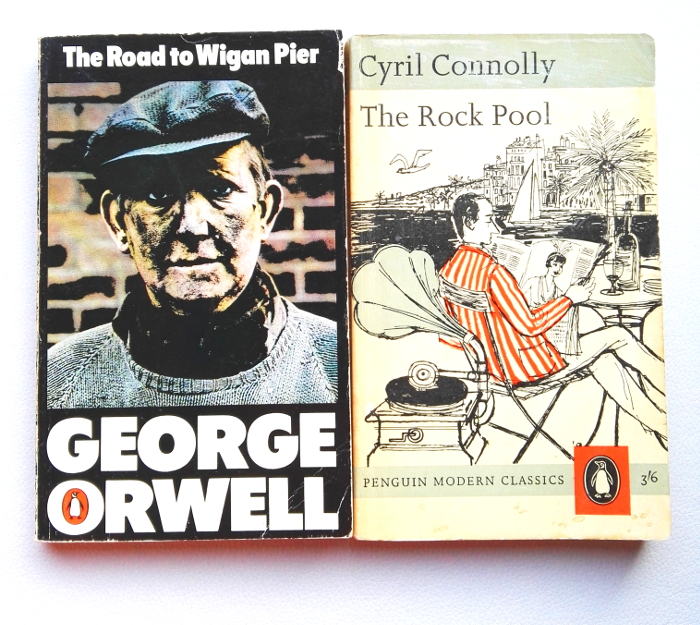
Two of my favourite books, Cyril Connolly’s The Rock Pool and George Orwell’s The Road To Wigan Pier were published a year apart from each other (in 1936 and 1937 respectively – more about the former here), by people who were not only contemporaries, but who knew each other and went to school together and remained on friendly terms; a narrow focus you’d think, but they perfectly exemplify very different currents in European society of the time. The Great Depression and the precarious living conditions of working class people (Orwell), and the dying years of ‘jazz age’ decadence and the ennui of the moneyed class (Connolly) are almost opposites, but both were to fuel the coming war; are these two zeitgeists or one? Which brings up the question (because I’m bringing it up) of hierarchies of zeitgeist. As World War Two loomed, these two groups were the yin and yang of interwar Europe. There was the vast mass of the unemployed or poverty-stricken working class for whom the Depression meant impending starvation and the need for change in order to survive. Then there was the differently disaffected upper class, products of and heirs to decaying empires, with little desire to deal with the running of them in the aftermath of the seemingly hollow victory (Allied Powers) or disastrous defeat (Central Powers) of World War One. But are yin and yang one entity, or two? (both, inevitably)
Closer to our own time, what could be more 80s than yuppie culture, racism, Thatcherism and Reaganomics? But also, what could be more 80s than “alternative comedy”, Rock Against Racism and the miner’s strike? In the early 90s, rave culture peaked around the same time as Guns ‘n’ Roses; a disappointingly sturdy beast as it turned out. Zeitgeist lore would have you believe that a pincer movement of dance music and Nirvana’s Nevermind swept away cheesy trad rock and its stylings, but in fact “Slash” was miming a solo on an unplugged Les Paul in the desert in the video to a hit single just months after Smells Like Teen Spirit had apparently rendered such things obsolete. So it goes; Mull Of Kintyre was the song that topped the charts as the year of punk came to an end. As with empires and revolutions, eras of whatever kind are rarely as neat as we’d like them to be retrospectively; and I say that as someone who owned, without any feeling of incongruity, albums by Nirvana and Guns ‘n’ Roses and the The Shamen.
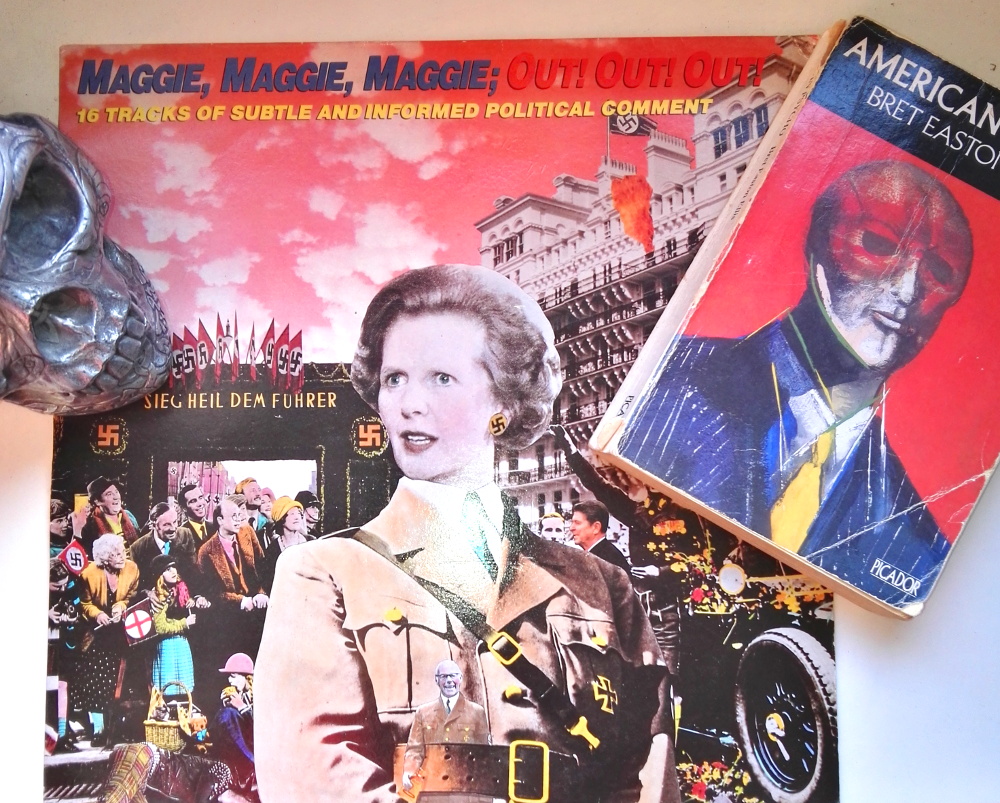
But away (partly) from music, the ways in which apparently opposed forces come together to define an era is always fascinating to look at. When they are violently opposed, as in the case of something like the hippies putting flowers in guns and then being shot at Kent State in 1970, it’s pretty black and white. Whether or not you think the hippies were ‘the good guys’, shooting unarmed protesters will always make you ‘the bad guys’. The two sides of the conflict couldn’t have been more clear. On the other hand, once you remove the life-and-death struggle, things become more ambiguous. To cite a very trivial example; the founding of the extremely successful label Earache Records in 1985 was part of a government sponsored enterprise scheme which essentially rebranded unemployed teenagers as entrepreneurs. It’s often celebrated as a kind of ironic victory of the anarcho-punk-crusty underground over nasty old Thatcherism – and that’s how label founder Digby Pearson saw it:
“… in the 80s, when you were unemployed in the UK, you had to go to visit the unemployment office every two weeks, and I didn’t fancy doing that. If you start a company, you get the same amount of money and you don’t have to visit the unemployment office every two weeks. You’re not unemployed anymore, so it’s a method for the government to reduce the unemployment figures…They didn’t care what business you did, as long as you did something… it was an excuse to say ‘Wow! I’m a record company!’ But the truth is I had no plans, nothing really.”
quoted in Albert Mudrian, Choosing Death – The Improbable History of Death Metal and Grindcore, Feral House, 2004 p.121
BUT, much as one applauds any victory over Thatcherism, isn’t the phenomenal success of Earache Records (going strong over 30 years later, with offices in London and New York), for all its rebellious, anti-Thatcher stance, just what the government wanted to happen? Doesn’t it kind of prove that, in this one specific instance at least, Thatcherism worked? Bleh. A silly segue, but it makes me think of this achingly ironic note from Breaking Free (1989) by “J. Daniels” – a very entertaining revolutionary socialist (or perhaps more precisely, anarcho-syndicalist or some such thing) Tintin book in which Tintin and Captain Haddock help to bring down western capitalism.

Apologies for abruptly bringing optimism into what has so far been apocalyptically downbeat, but the point here if there is one, is that people can and retrospectively do choose the zeitgeist they prefer. The changing critical fortunes of pop stars are always very interesting to observe from that point of view – the world is full of “the kind of people who had to wait until 1968, when it became chic to say that Brian Wilson was a genius, before they could admit that they liked The Beach Boys”* – so why not do it now, and in doing so strengthen the spirit itself? Against Trump, Farage, Brexit, rigid political ideology and religious dogma you can set Greta Thunberg, Katrín Jakobsdóttir, David Attenborough, Bonnie Greer, Alexandria Ocasio-Cortez, Stormzy, Carole Cadwalladr and really, so many more; this was a random, pulled-out-of-the-air list, in no way meant as definitive or even representative.
*Charles Shaar Murray in Creem magazine, 1972, from Shots From The Hip, Penguin books 1991, p.16
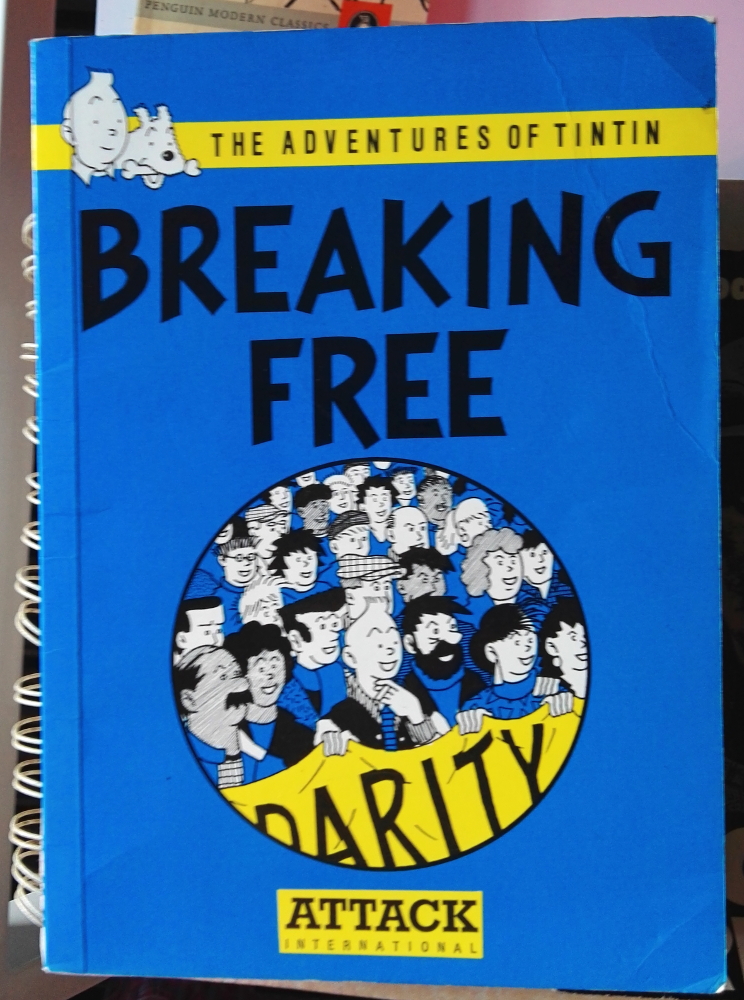
The current, sunnily optimistic issue of the alumnus magazine of my alma mater (well, why not? I’ve never written that phrase before!) pleased me – because if populism and intolerance are ‘the zeitgeist’, then so is this – and what’s more it is the future too. It’s hard to think of a more conservative (in the tradition-bound sense) institution than the University of St Andrews, but even aside from the cover story (Internationally Scottish; an exhibition celebrating diversity), the magazine regularly celebrates its award-winning graduates from all over the world, the globally important research undertaken at the university and, on a more intimate level, has a news column recording marriages and civil partnerships of its alumni. That is, it covers a hugely diverse mix of people from a multiplicity of backgrounds, doing a range of things. It celebrates diversity (have to admit that phrase is irksome though) – just like movies and TV shows and commercials and shops and organisations still now do – not because such things as internationalism and civil partnerships are either ‘politically correct’ or daringly edgy, or because it’s somehow forced on them (by whom, anyway?), but because it’s good business; because it’s society, it’s people, and what people do, how they live and what they want. When people stop being diverse, this will stop happening. And the point is that people always have been diverse, but the people in charge have not. But, almost against their will, they are starting to be.

Looking at the bigger picture, it quickly becomes clear that all this apparently endless Brexit/Trump reactionary nonsense is just the foamy-mouthed dying throes of old ways of life. Despite the constant yammering about elites and freedom, these ways of life were established by people with an inflated sense of their own importance and exceptionalism (and/or that of whatever they identify with; nation, gender, ethnicity; the usual suspects) and a vision of freedom which only meant their own freedom to do whatever they want to do without interference.
That’s not to say that the dying throes of outworn cultures are harmless (see WW1 for instance), and I’m not naïve enough to say that all will be well; but in the end, the wave of reactionary negativity is doomed, because ultimately people don’t want authoritarianism unless they happen to be the ones in positions of authority and because people who have grown up and lived in relative freedom will not have it easily taken away; I hope anyway. In history there are very few analogues to the present time, which is probably why the geist of the Weimar Republic hovers so ominously.
Despite the current state of world and British politics, in most important ways, more things are probably better for more people – certainly in the western world (not, I realise, a minor caveat) – than they were in, say 1989 – and the bits that are worse are fixable, given the political will to fix them. The political class finding that will rather than being absorbed by its own power struggles and internal battles is always a problem, admittedly; and more and more I feel the will will have to be forced upwards from ‘ordinary’ people, somehow, though that ‘somehow’ presents a whole different set of issues.
But while looking forward, it’s instructive to look at what it actually is that people are nostalgic about. Yes, there are those who yearn for times when they could do whatever they wanted because of the class/country/whatever they came from, but there are also things like the wartime spirit, or the solidarity of the mining communities before Thatcher destroyed them. Nobody wants to be bombed, and few if any people actually enjoyed working in coal mines – what people generally miss is the sense of community that arises from adversity,* The thing to do then, is to try to create the missing sense of community without having to experience the adversity. And people are doing exactly those kinds of things; community projects, ecological movements, local groups, international organisations. Imagine the progress – in the sense of good things for the future of the world – that could be made if people tried to humanise entities like the EU, rather than breaking them apart or divorcing from them or viewing them as first and foremost business ventures. If hate groups are on the rise (and they always seem to be), then more positive movements are flourishing too. Personally, although I think it’s great, I don’t really feel comfortable belonging to things, but I’m glad other people want to. But as with the ever more arcane (and ever more necessary) rules about recycling and plastic-usage, I’ll get used to it. We can still be okay in the end, if we want to be. This wasn’t what I started out to write, but it’s a nice note to end on.
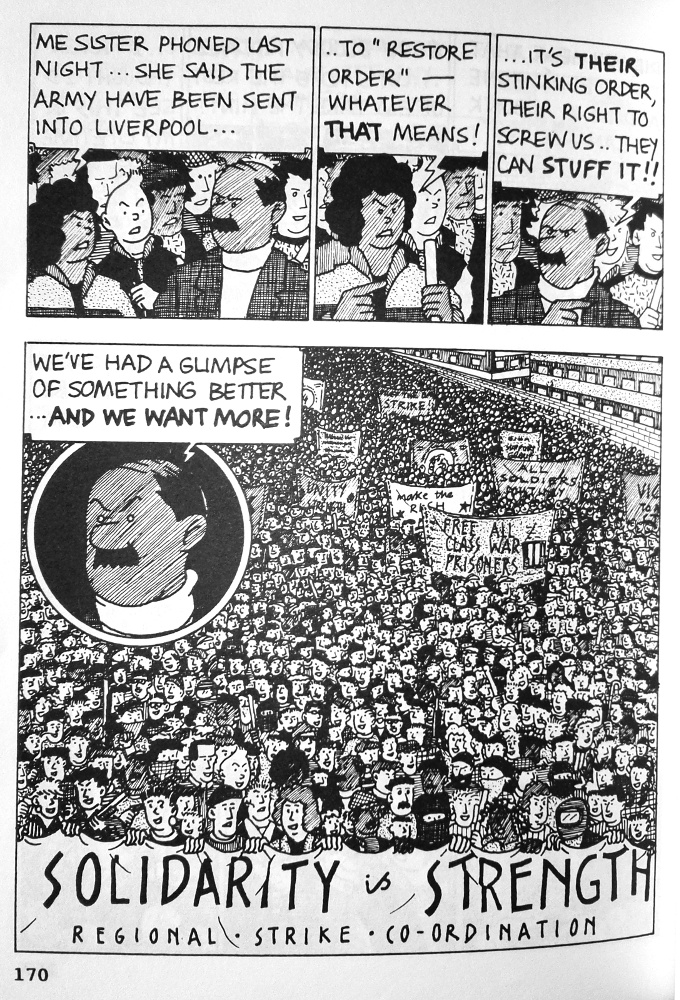
*Side note: it can be shocking for someone of my generation to realise the extent to which shared experience – already very much in the decline in the 70s and 80s, has changed and all but disappeared. To take a very trivial example (the main kind of examples I seem to give), if you were at school in the UK in the 1980s, and if your family was the sort where the TV was on in the evening, you could pretty much guarantee that you and almost everyone you knew would be watching one of 4 (or even 3) shows at any given time. Not only did you as a child know what was in the top 10 (possibly most kids still know that) but, thanks to Top of the Pops your parents did too, and possibly even your grandparents, if you had such things. I’m not saying it was better, but it was substantially different. What we now seem to have in place of that kind of boring, take-it-for-granted shared experience is vaguely similar but utterly different; instant familiarity. ‘Re-imaginings’, reboots, remakes, new songs that sound like old songs (I recently heard a hit song that blatantly “borrows” the melody of the verses from Dolly Parton’s Jolene and another which lifts the chord sequence of Every Breath You Take by The Police; these are not obscure reference points, but nor are they acknowledged as pastiches or homages, or credited as samples are, though presumably royalties are being paid). Familiarity, however much contempt it’s supposed to breed, is apparently comforting, or at least saleable.









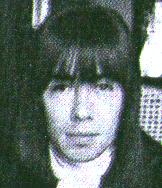
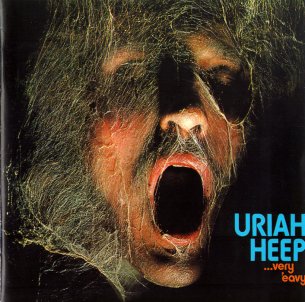 As if all this wasn’t enough, the album is housed in one of the great rock sleeves of the era: a fallen warrior (David Byron in fact) covered in cobwebs, the darkness surrounding him only broken by the (superbly-fonted) logo and title. The gatefold features a photo of the band onstage.
As if all this wasn’t enough, the album is housed in one of the great rock sleeves of the era: a fallen warrior (David Byron in fact) covered in cobwebs, the darkness surrounding him only broken by the (superbly-fonted) logo and title. The gatefold features a photo of the band onstage.